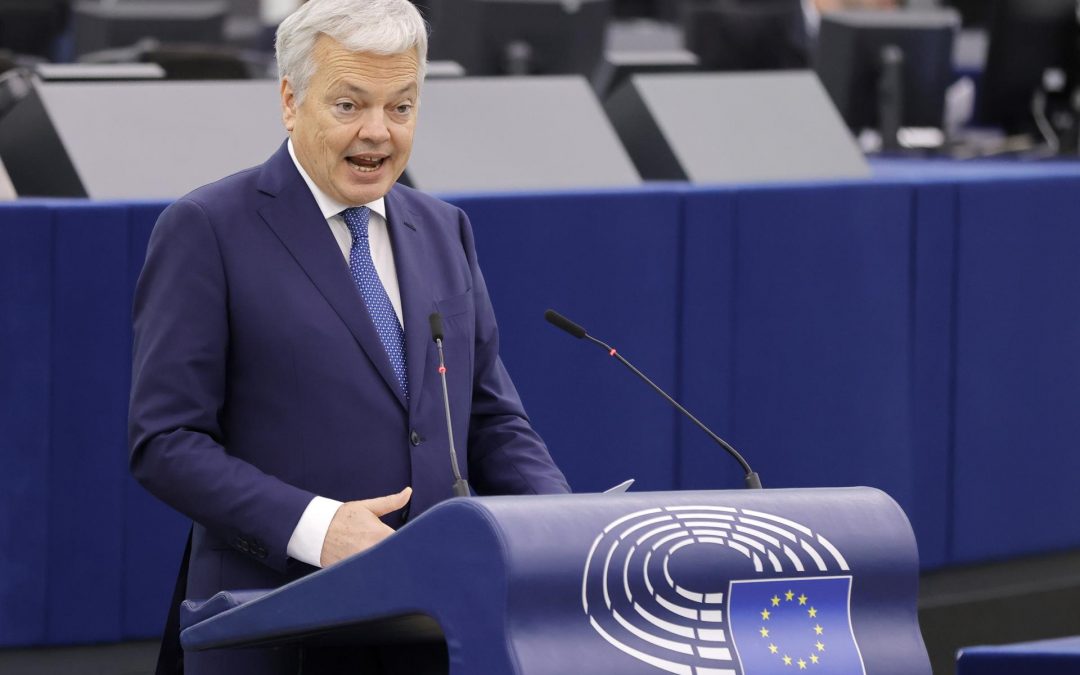BRUSSELS – Belgium should make more efforts to strengthen the integrity of the political system, for example with stricter rules about cooling-off periods at the end of a mandate or about gifts and benefits for parliamentarians. The European Commission recommended this on Wednesday in its annual report on the rule of law in the member states.
The Commission had already given this advice last year, but it now has to conclude that no progress has been made in Belgium in this area. For example, the Commission remains unsatisfied with the approach to revolving-door politics, the phenomenon where civil servants or politicians move to companies or organizations with which they have cooperated. There are still “no clear or binding rules on cooling-off periods or transition restrictions for ministers, their staff, or parliamentarians, which limits their effectiveness.” Another shortcoming is the absence of “clear or consistent rules on gifts and benefits for parliamentarians.”
The Commission urges the Belgian government and parliament to complete new lobbying rules. The outgoing government led by Prime Minister Alexander De Croo had planned to develop a reform, but remained stuck with a draft law on contacts between ministers and lobbyists. No steps have been taken in parliament either, the report laments. The Commission can only conclude that “despite four years of work and its inclusion in the government’s coalition agreement,” again no agreement has been found on reforming party financing.
“There are still no clear or binding rules on cooling-off periods or transition restrictions for ministers, their staff, or parliamentarians, which limits their effectiveness.”
European Commission
Since 2020, the European Commission has published an annual report on the state of the rule of law in the member states, focusing on respect for crucial democratic pillars such as the independence of the judiciary, the fight against corruption, and media pluralism. Based on the report, it aims to act preventively and engage in dialogue with member states, rather than immediately initiating infringement procedures or deploying other instruments. This works, claims the Commission. For example, member states have acted on 68 percent of last year’s recommendations.
The Commission is occasionally accused of having an overly rosy view of the state of the rule of law on the continent, but according to Justice Commissioner Didier Reynders, the report is “neither optimistic nor pessimistic.” The report “simply observes, fortunately, that a large number of member states want to improve the situation regarding the rule of law, and we also see significant reforms, but that does not mean there are not also steps backward, or even problematic and systemic situations in some member states,” said the Belgian during the presentation of the report.
07/24/2024
 go to the original language article
go to the original language article
